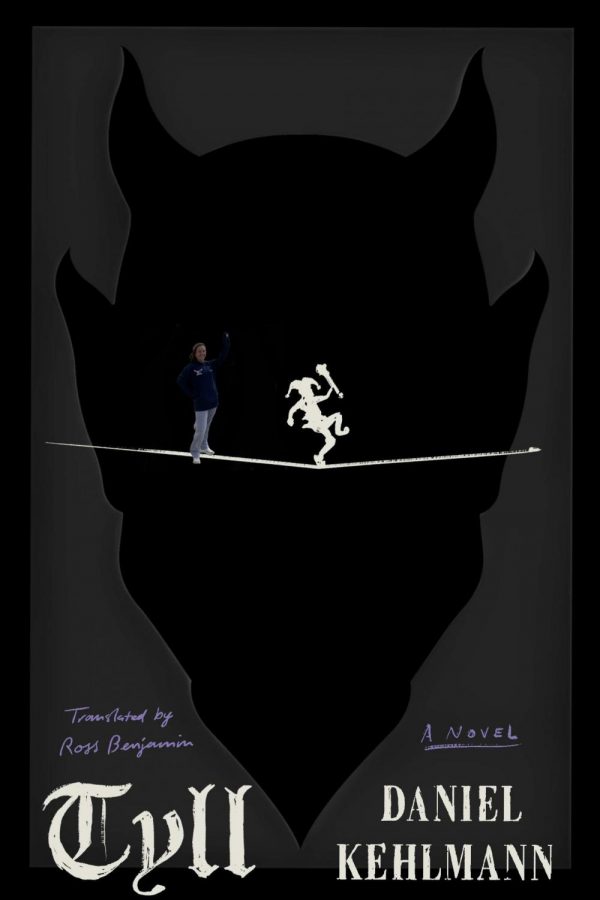Anna’s Book Nook: Tyll by Daniel Kehlmann
Photo illustration by Anna Keneally
Anna Keneally follows Tyll on the tightrope of life as they dodge death, the Devil and oblivion.
Till Eulenspiegel is a prankster who has been the protagonist of German folklore since the 16th Century. His journeys and jests were the subject of songs, ballads and stories for the lower class burdened with living in the Middle Ages. His last name, meaning “owl glass” is often interpreted to mean “wise reflection,” as he was used often to poke fun at the society of the time through his own actions. Whether or not he was real is up for debate, but his adventures during the Thirty-Year War makes for an amazing story: Tyll by Daniel Kehlmann.
I would like to consider myself fairly well-versed when it comes to world history, but the Thirty-Years War exists just as blips of information to me. I believe that it made the story better not to know much about the history surrounding the plot. It was fun to get “aha” moments throughout the book when you hear something familiar like the Defenestration of Prague. Aside from the history, the story centers around the protagonist, Tyll, and his life from youth to adulthood. Growing up as the son of a miller, he eventually progressed to be the jester of the Winter King and Queen. Sometimes Tyll shifts from being the main focus to just being a cameo within his own book, which was an interesting play on perspective in a theatrical way.
The story’s meandering plot mimics the life of Tyll and much like he is the master of the tight-rope, Kehlmann is a master of balancing on the rope of fantasy and reality. The book serves as an interesting conversation about faith and what it means to believe. Tyll’s father, Claus, who is an alchemist, the Jesuit inquisitors, and the faithless Tyll, are great case studies as to how belief shapes a person. The fascinating thing about this book is that we have no idea who is right in the end. Did Claus’s spells work? Did the Jesuits actually cure the plague with dragon’s blood? Or is this all wrong and is Tyll the only reasonable one?
What better vessel to tell a story of faith than a faithless prankster? He survived solely to perform and escape obscurity, much like a good book. Today, the world is not as bleak as it was in the Middle Ages, but storytelling still exists. Why? Because sometimes people just need something to believe in whether that be religion, magic or a tightrope-walking jester. In my research, the last story of Tyll I could find outside of this book was of his burial. When walking his casket to the grave, the front casket-bearers dropped him, resulting in Tyll landing in the ground as if he were standing up. Instead of fixing the coffin, the viewers decided that there was no better way to remember the odd man than with an odd burial. Tyll broke the mold even in death.
I would like to believe that Tyll existed, and because no one can prove me wrong, he did. Faith is an individual experience that helps us make sense of a confusing world. Tyll was and continues to be a confusing man, but people still believed in him. I think that is beautiful: not trying to put faith in something that makes the world seem less confusing, but instead accepting life for what it is, looking at it dead in the eye, and cracking a joke.
Your donation will support the student journalists of Thomas S. Wootton High School. Your contribution will allow us to purchase equipment and cover our annual website hosting costs.
Anna Keneally is a 2022 graduate.










